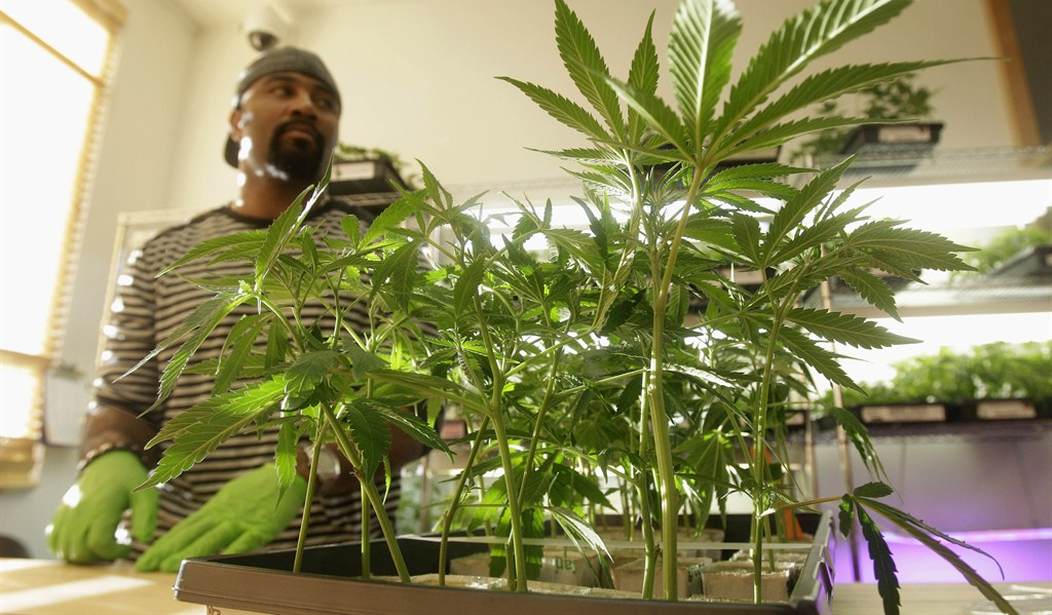In the first two parts of this series, I explained the comparative dangers and health risks of alcohol and marijuana. To elevate one over the other is like saying a plain doughnut isn't so bad as a glazed one. The point is that neither of the drugs is good for us or our culture.
We examined both of their addictive natures, the withdrawal symptoms and the hazards they create when those using them operate motor vehicles. We then looked at what science has concluded about their effects on our minds, bodies and relationships. (Of course, there are many other arenas that are impacted by alcohol and pot use -- especially if the latter is legalized in even more states -- such as health care and places of employment.)
Despite its risks and dangers, however, many proponents ask regarding marijuana: "But isn't legalizing pot really an issue of freedom and removing government tyranny over our choices?"
First of all, we can play the freedom card on any issue under the sun -- from polygamy to pedophilia and heroin use to smuggling. But some form of societal civility must be enforced, lest the combustible mixture of hedonism and liberty lead to societal mastication.
Second, we must bear the weight of ensuring societal safety and handing down a republic that is preserving its posterity rather than placing more obstacles in its way. The nanny state is one problem, but so is the guise of liberty that is in reality rampant licentiousness.
Thomas Paine once wrote, "The rights of minors are as sacred as the rights of the aged." But he -- like our other Founding Fathers -- believed not in throwing our youth to the wolves and whims of culture but rather in developing young people into well-rounded moral and responsible citizens.
Benjamin Rush, a signer of the Declaration of Independence who helped to establish five universities and colleges and is known as the "Father of American Medicine," wrote about the importance of not exposing young people to corruption before they can handle it. He noted, "In order to preserve the vigor of the moral faculty, it is of the utmost consequence to keep young people as ignorant as possible of those crimes that are generally thought most disgraceful to human nature."
Recommended
Of course, developing responsible youths is not about keeping them in a monastic bubble. However, it is about possessing enough parental wisdom to expose them gradually to society's amenities and temptations and give them the tools to overcome and control them. But when a hedonistic culture bent on personal license overexposes adolescents to nearly everything in culture, should we expect them then to bear the baton of discipline and responsibility?
Many know George Washington as the general of the Continental army and the first president of the United States. But few know that at just 14 years of age, Washington wrote out in freehand of his own volition "110 Rules of Civility & Decent Behavior in Company and Conversation." At 17, Washington's first official position was as surveyor of Culpeper County, Va.
Washington epitomized responsibility, service and courage his whole life. Some were frightened by signing the Declaration of Independence, but Washington was on the front lines battling for its tenets. He faced his fears and endured grave hardships, repeatedly staring death in the eyes while helping others to do the same.
I think Washington's greatest challenge was when he stepped away from public service and warned America what could happen if future generations drop their guard and discard the pillars of our country's foundation to justify self-indulgence. He was concerned that freedom would be turned into an excuse for licentiousness. With the founders counting on religion in our republic to bridle barbarianism, Washington was profoundly worried that such a great pillar would be discarded and open the floodgates for individual immorality and societal decadence.
So as Washington bid adieu to his presidential office and public service, he extended this challenge to our entire country -- one that echoes even now from his grave at Mount Vernon:
"Of all the dispositions and habits which lead to political prosperity, religion and morality are indispensable supports. In vain would that man claim the tribute of patriotism who should labor to subvert these great pillars of human happiness, these firmest props of the duties of men and citizens. The mere politician, equally with the pious man, ought to respect and to cherish them. A volume could not trace all their connections with private and public felicity. Let it simply be asked: Where is the security for property, for reputation, for life, if the sense of religious obligation desert the oaths which are the instruments of investigation in courts of justice? And let us with caution indulge the supposition that morality can be maintained without religion. Whatever may be conceded to the influence of refined education on minds of peculiar structure, reason and experience both forbid us to expect that national morality can prevail in exclusion of religious principle."
So what message does legalizing pot send the youth of America? And what are we expecting young people to do with such a universal decree? Do we really think the elimination of our drug laws is the type of constitutional liberty for which our founders purposed and paid the price?
When liberty becomes licentiousness, it's time to reconsider why we're doing what we're doing. Just because we can doesn't mean we should. If that were the case, what other illicit passion would be next in the lineup of legalization?
Maybe it's time we start fighting to show America's kids that life can be good on its own merits without altering reality with any drug. Rather than drive their lusts toward satiation and self-indulgence, maybe it's time we help redirect their passions to understand the power of restraint and discipline. Maybe it's time we raise the bar and expect them to write on their own volition works such as Washington's list of rules.

























Join the conversation as a VIP Member